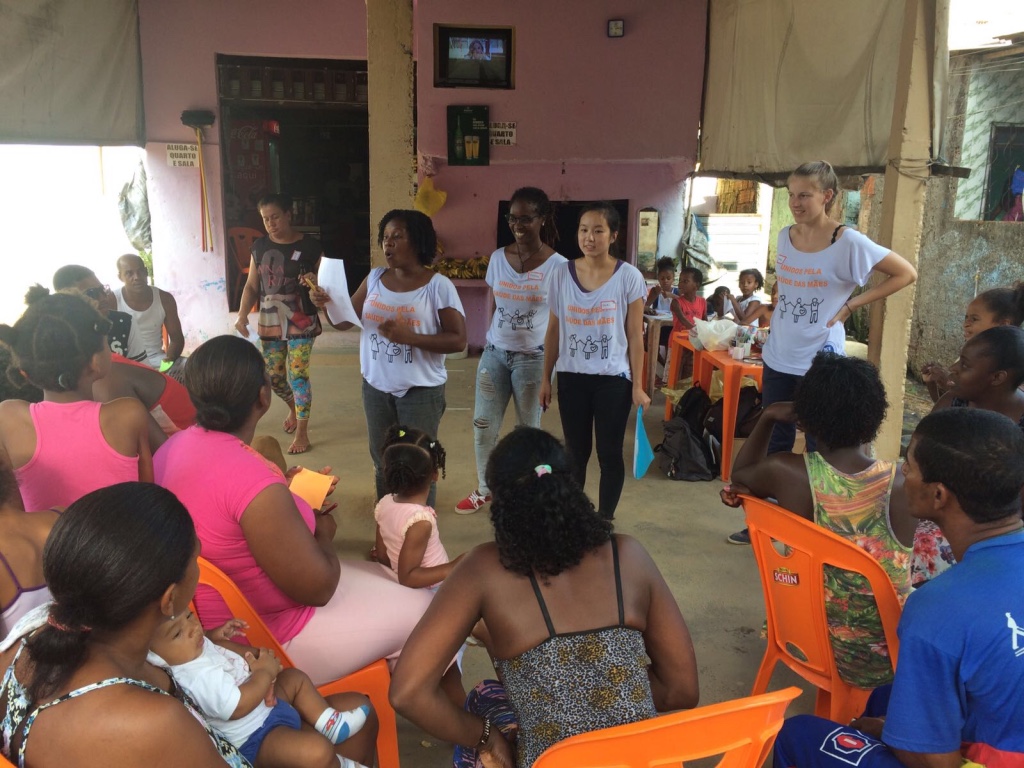A PAR aiming to improve access to maternal health for women living in the favelas of Salvador de Bahia, Brazil.
final_report_lisanne_bosveld, Maternal Health Challenge, Brazil
Download
![]()

A PAR aiming to improve access to maternal health for women living in the favelas of Salvador de Bahia, Brazil.
To facilitate the co-creation of an intervention among inhabitants of Salvador, Brazil, to improve access to maternal health care
Given the scarcity and limited resources at the health posts and the available time period, we focused on 1) increasing the chances for an individual to be able to get a prenatal consult planned and 2) to have access to the right information on the requirements and availability, so she will be well prepared and does not have to queue up in vain.
In this light, the team created an infographic which was handed out as a flyer to inhabitants
of the community. Furthermore, the infographic was printed as a poster and distributed on different places in the community, such as the church. The flyer emphasized the importance of prenatal care and pointed out the various health posts’ availability and the required documents.
We invited the manager of the health post to answer the questions of the community and to introduce him to the local leader. In this culture it is important to have a strong network and relationship- building is a step forward.
We reported our results to the Brazilian Ministry of Health and officially formulated a complaint on the fact that at the local health post, for two months there were not admitted any new patients (pregnant women). Our call was heard and we received a response
(translated Portuguese- English):
“We are aware of the difficulty faced in scheduling pre – natal consultations for residents of Baixa – Fria and understanding the importance of follow – up of the pregnant woman in
basic care and in order to ensure women ‘s right to reproductive planning and humanized attention to pregnancy, childbirth and puerperium, as well as the child’s right to safe birth
and healthy growth and development, called the Stork Net. We saw through this to get more information about the need for prenatal consultations of pregnant women in the community of Baixa Fria, so that together we can solve this question.”
Our local team member Susana was willing to uptake further actions on this after our return to the Netherlands. She stated:
“She [the coordinator of VISAU, Sanitary District of Pau da Lima] called me. She asked for a list of the names of the pregnant women, gestation time and contact. She will be responsible to make appointments for them. I go to the community to talk to the leaders and to the church because they also found most of the pregnant women for the focus group.”
Susana is by the time of writing in the process of talking to the leaders and church and creating a list of pregnant women to make appointments for them.
Through this first action, enabling local pregnant women in the Sanitary District of Pau da Lima to make use of prenatal care, local stakeholders can set up a strategy to open up access for future pregnant women as well.